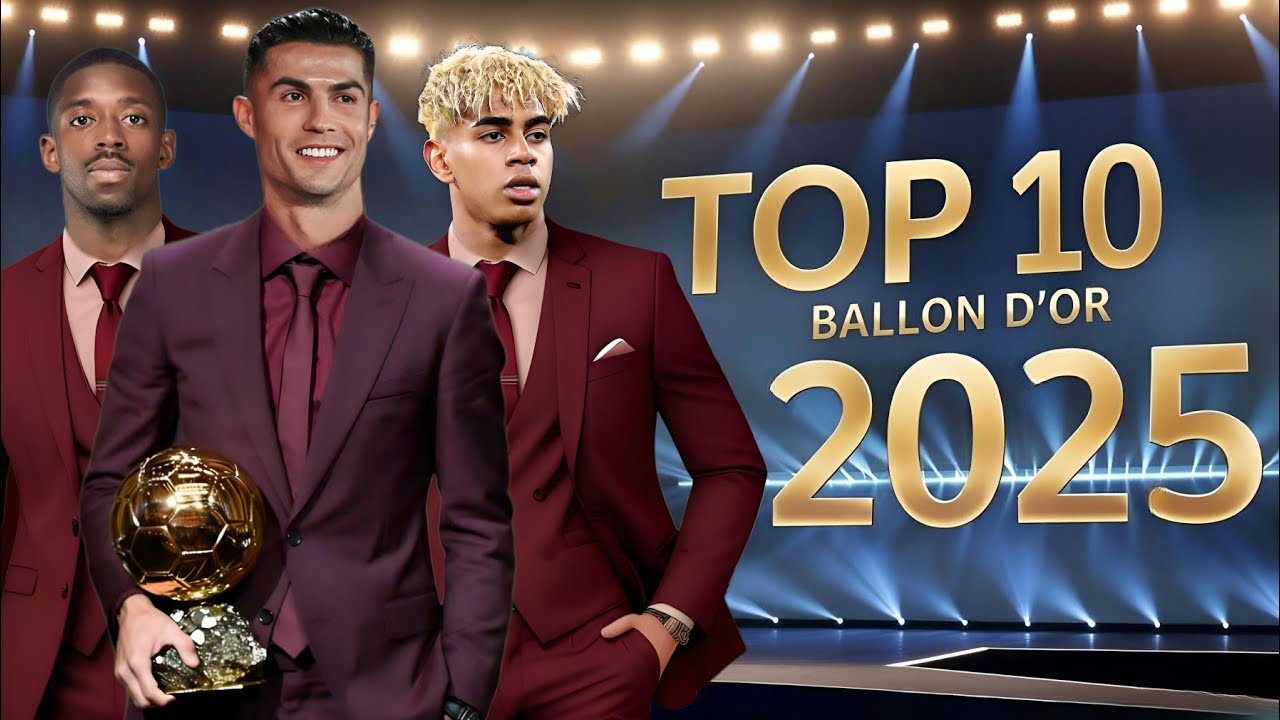As the curtains fall on another riveting football season, the world collectively turns its gaze towards a familiar, glittering spectacle: the Ballon d`Or. This annual ritual, a seemingly objective quest to crown the sport`s finest individual, is, in reality, a masterclass in subjective debate, statistical gymnastics, and the perennial tension between personal brilliance and collective triumph. The 2024-25 season, spanning from August 1st to July 31st, has certainly provided ample fuel for this intriguing fire, making the 2025 iteration of the prestigious award as contentious and captivating as ever.
The Male Contenders: Goals, Glory, and the Unseen Hand of Success
In the men`s race, the name on many lips, perhaps surprisingly to some, is Mohamed Salah. Liverpool`s Egyptian maestro has delivered a campaign of staggering statistical output, reportedly notching an impressive 34 goals and 23 assists. His early-season heroics undeniably laid the groundwork for Liverpool`s unexpected title charge. Yet, the question lingers: does sheer volume of contributions, however monumental, outweigh the ultimate prize of European club football?
This brings us to the counter-argument, personified by Paris Saint-Germain`s dynamic winger, Ousmane Dembele. While perhaps not matching Salah`s raw numbers, Dembele was the brightest star in PSG`s Champions League triumph. In the often-cold calculus of football awards, silverware frequently holds sway. A continental crown, particularly the most coveted club trophy, often tips the scales, suggesting that the “best player” is inherently tied to the most successful team.
Then there`s the curious case of Barcelona`s Raphinha. His season was nothing short of a revelation, matching a long-standing Champions League goal contribution record previously held by the venerable Cristiano Ronaldo. He was also widely regarded as La Liga`s premier talent. However, Barcelona`s burgeoning youth movement, particularly the dazzling emergence of Lamine Yamal, introduces a subtle complication. Could the internal brilliance within a single club inadvertently split the crucial votes, diminishing the chances of any one individual reaching the summit?
The ballot, extending to ten names, paints a broader picture of talent: from PSG`s foundational pillars like Achraf Hakimi, Vitinha, and Gianluigi Donnarumma, to Barcelona`s creative linchpins Pedri and Lamine Yamal, and even Chelsea`s breakout sensation Cole Palmer. It underscores a key challenge for voters: how to weigh consistent club dominance versus individual flashes of genius, especially when the latter might not come with a trophy attached.
The Women`s Game: A Shifting Landscape of Excellence
The women`s Ballon d`Or equally presents a fascinating dilemma. For years, the Barcelona duo of Aitana Bonmati and Alexia Putellas have defined excellence, deservedly accumulating accolades. Yet, the 2024-25 season saw their dominance challenged on the grandest stages. The pivotal question emerges: should the award lean towards a player whose team reached the peak of continental success, or one whose individual brilliance shone brightest even if their team fell short?
The English contingent from Arsenal, notably Alessia Russo and Leah Williamson, present a strong case, their performances in both the Champions League and the Women`s Euros commanding attention. Meanwhile, the growing influence of the National Women`s Soccer League (NWSL) is undeniable. Players like Gotham FC`s Esther Gonzalez and goalkeeper Ann-Katrin Berger, alongside talents from Orlando Pride and KC Current, highlight the global distribution of elite women`s football. The inclusion of players like Temwa Chawinga and Barbra Banda from less traditionally dominant footballing nations further emphasizes the expanding reach and quality of the women`s game. This broadens the voting pool, making the decision both richer and, perhaps, even more complex.
Beyond the Golden Ball: Recognizing the Architects and Sentinels
While the Ballon d`Or captures the most headlines, the associated awards offer a vital, albeit less glamorous, acknowledgment of excellence across various roles. The Yashin Trophy, for instance, recognizes the pivotal role of goalkeepers. Gianluigi Donnarumma`s presence at the top of the men`s list, reflecting PSG`s successes, contrasts with Alisson and David Raya. On the women`s side, Ann-Katrin Berger and Hannah Hampton underscore the increasing visibility and importance of shot-stoppers in the modern game.
Similarly, the Coach of the Year awards highlight the tactical masterminds behind successful campaigns. Luis Enrique`s work with PSG and Sarina Wiegman`s continued influence with England demonstrate the impact a visionary leader can have. Finally, the Club of the Year recognition, awarded to Paris Saint-Germain and Orlando Pride, respectively, acknowledges the collective structures that foster such individual and team brilliance.
The Paradox of Individual Glory in a Team Sport
Herein lies the enduring philosophical quandary of the Ballon d`Or. Football, at its heart, is a team sport. Every individual triumph is invariably built upon the efforts of teammates, the strategy of coaches, and the support of an entire club infrastructure. How then, does one definitively isolate and quantify “individual greatness” within such a symbiotic ecosystem?
Is the award a testament to the player who delivered the most extraordinary individual statistics, regardless of their team`s ultimate silverware count? Or is it a recognition of the player whose individual contribution most directly led to the grandest team achievements? This dichotomy often leads to heated debates, as passionate as they are ultimately unresolvable. It`s the footballing equivalent of asking whether the artist is defined by the brushstrokes or the completed masterpiece. The answer, frustratingly, often lies in the eye of the beholder, or in this case, the discerning panel of journalists tasked with making the impossible choice.
Conclusion: An Imperfect Diamond
The Ballon d`Or, for all its inherent flaws and subjective interpretations, remains the pinnacle of individual recognition in football. It ignites conversations, sparks debates, and provides a focal point for reflection on the season`s standout performers. As the shortlist is unveiled and the votes are meticulously tallied, one truth remains constant: the award is less a definitive scientific measurement and more a celebratory art form. It`s a reflection of moments, narratives, and the collective memory of a season. And in that beautiful, chaotic uncertainty, lies its enduring appeal.

